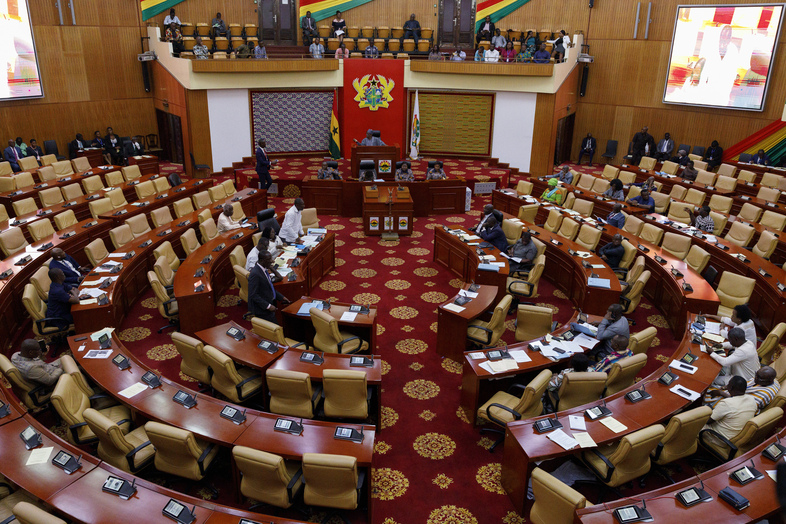- by Admin
- January 24, 2024
Click the link below to join Our WhatsApp group for daily brief on current trends in the country.
Join Here!
Loading

As Ghana prepares for her 2024 general elections, a noticeable shift in the political landscape is emerging. Many Members of Parliament (MPs) are sidelining their legislative responsibilities, opting instead to join their party’s flagbearers on intensive campaign tours. This phenomenon has raised questions about the balance between governance and political ambition, and its implications for the country’s democratic process.
The general elections, slated for December 2024, are anticipated to be fiercely contested, with the major political parties – the New Patriotic Party (NPP) and the National Democratic Congress (NDC) – locking horns in a bid to capture the presidency and secure a majority in Parliament.
The high stakes have driven MPs to prioritize campaigning over parliamentary duties, aiming to bolster their chances of re-election and support their party’s presidential candidates.
Campaign trails across Ghana are bustling with activity. MPs are crisscrossing their constituencies, attending rallies, meeting with local leaders, and engaging with voters. The presence of parliamentarians alongside party flagbearers is intended to demonstrate unity and strength, as well as to leverage their local influence to garner votes.
The absence of MPs from parliamentary sessions has had a tangible impact on the legislative process. Key parliamentary activities, including debates, committee meetings, and the passage of bills, have been delayed or put on hold. This interruption raises concerns about the efficiency and effectiveness of governance during an election year.
The Minority in Parliament last week complained that most members of the Majority have abandoned parliamentary business for campaign tours with the flagbearer of the New Patriotic Party, Dr Mahamudu Bawumia since the house resumed from recess.
The Executive Director of the African Center for Parliamentary Affairs, Dr. Rasheed Draman has called on Parliament to initiate strict sanctions to address the issue of absenteeism in the House.
In an interview with RGG News, the Executive Director of the African Center for Parliamentary Affairs, expressed worry about the issue, highlighting that this problem has persisted through multiple Parliaments.
He said,” They are doing work that is not supposed to be their work. Because Parliament is not on recess and so during the recess, they could follow the Vice President or for that matter any presidential candidate of their choice. But even then, it raises issues because, when they are on recess, that is when they are supposed to be with their constituents.
“For me, that brings me to the issue of absenteeism that we are grappling with as a country. And unfortunately, Parliament, that is, this Parliament as well as all the seven Parliaments before this one have not been able to have a handle on this issue of absenteeism.
“Parliament has been very weak when it comes to dealing with this matter. Either because the kind of sanction and the measures put in the constitution and the standing orders are ones that a parliament cannot really implement, or the leadership of parliament is running away from its responsibilities.
“In the past, when some of these issues came up, I think some of us have found out that parliament knows that they cannot punish our own for absenteeism. Then perhaps they should consider other methods of dealing with absenteeism.
“Like what is done in some European countries where you absent yourself and you lose some benefits. Otherwise, because there is no real sanction regime, people can just walk away from Parliament. And show up anytime, because they know nothing is going to happen to them, as has been the case over the years.”
The dual responsibilities of MPs – as legislators and as political campaigners – pose a significant challenge. While campaigning is essential for democratic participation and voter engagement, it is equally important for MPs to fulfill their legislative duties. The current scenario underscores the need for a balanced approach to ensure that governance does not come to a standstill during election periods.
Political analyst, Bright Oduro suggests that a more structured approach to managing parliamentary schedules during election years could help mitigate these issues.
“For example, designating specific periods for intensive campaigning while maintaining a core schedule for essential parliamentary business could strike a better balance,” he said.
However, some Members of Parliament argue that their presence on the campaign trail is crucial for understanding the concerns of their constituents and building rapport with voters. They contend that effective campaigning is part of their duty to secure a mandate to continue serving their communities.
The phenomenon of MPs abandoning parliamentary business for campaign tours highlights a critical aspect of Ghana’s political dynamics. It underscores the need for systemic adjustments to ensure that electoral fervour does not overshadow the essential functions of governance. As the nation looks forward to the 2024 elections, finding this balance will be crucial for the continued stability and progress of Ghana’s democracy.

Click the link below to join Our WhatsApp group for daily brief on current trends in the country.
Join Here!
0 Comments: